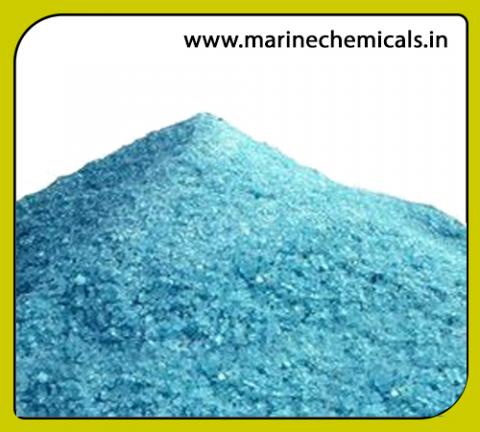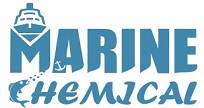
Sodium Silicate Water Glass
Silica gel production
Builder or anti-soil-redeposition agent for detergent
Peroxide stabilizer in bleaching for textile and pulp
Solubilizer in ink, flux binder for welding rods
Deflocculant for ceramic
Buffer
Fireproofing paper catalysts
Water treatment
Concrete hardner and acid-proof
Petroleum processing by emulsion breaking and corrosion prevention
Timber treatment.
Oil Field use
Range of Products:
We manufacture large range of Sodium Silicate both in Neutral and Alkaline grade of the typical qualities.
We also manufacture Sodium Silicate as per the customer's requirements and specification.
| Sodium Silicates | Concentration | Mole Ratio | Baume |
| Alkaline Sil | 40 - 54 % | 2.1 to 2.6 | 45 - 57 |
| Neutral Sil | 27 - 39 % | 3.0 to 3.5 |
30 - 41.5 |
TESTING PROCEDURE :::
ANLYSIS PROCEDEURE OF SODIUM SILICATE : Take 5gm of sodium dilute it to 250ml in SMF with dist. Water , take 50 ml of the diluted solution add 2-4 drops of methyl red indicator. Then titrate it against IN {approx.} HCL Light Pink is the end point. Take this reading as “A” ml. To this solution add 5 gm of sodium fluoride dissolve properly add 6-7 drops of methyl red indicator titrate against IN HCL appearance of slight pink colour is the end point . Take this reading as “B” ml
CALCULATION For Na2O
“A”ml x 3.1 x normality of HCl = C%
Wt. Of sample
For Sio2
“B”ml x 15.02 x normality of HCl
Wt. Of sample X 10
Ratio of sodium silicate
% of SiO2 i.e D%
% of Na2o C%
Viscosity- AS PER IS 3944 B4 CUP
DETERMINATION OF IRON (as per Fe)
- Botanic Potassium Thiocynate ;- dissolve 1.0gm of potassium thiocynate in10ml of water. Add sufficient n-butano to makeup to 100ml. Shake vigorously until the solution is clear.
- Dilute H2SO4 :- approx.10%
- Standard Iron solution : weight 0.702gm of Ferrus Ammonium sulfate. Dissolve in 10ml dilute H2SO4 then make up 1000ml with water. Transfer 10 ml of this solution in 100ml M.Flask and make up 100ml with water. 1ml of this solution is equivalent to 0.01mg of iron
PRCEDURE :
- Sample Reading: take about 5gm of the sample accurately weighted. Dissolve it in distilled water and make the solution exactly 100ml. Take 10 ml of this solution add 1ml concentrated Nitric acid. Boil the solution and cool. Then transfer it into a nessler cylinder and add 30mg of Ammonium Persulfate and 15 ml of Botanic Potassium Thiocynate solution. Shake for 30 sec and allow the liquid to separate.
-
Blank reading : take 10 ml distilled water. Add 1ml concentrated Nitric acid boil the solution and cool. Then transfer it into a nesseler cylinder and add 30 mg of Ammonium Persulfate and 15 ml of Botanic Potassium Thiocynate solution . Shake for 30 sec. And allow the liquid to separate. Then add Standard Iron Solution until the colour of Butanol Layers in Both Cylinder (Sample & Blank)
CALCULATION :
Iron as Fe (%w) = 0.001 V
W
Where,
V= Volume in ml of Standard Iron Solution to add in Blank Reading
W= Weight in gm of sample
For soil application: Sodium silicate can be added to the soil or potting mix. The correct dosage will vary depending on the plant, soil type, and the specific product being used.
For foliar application: It can be applied as a spray to the leaves of the plant.
As a fertilizer enhancer: It can be combined with other fertilizers to improve their efficiency and provide a slow-release benefit
Sodium Silicate uses in agriculture and horticulture. It is widely used as a soil stabilizer and for soil erosion purposes, ensuring healthy soil.
Other uses for sodium silicate include fertilizer and pesticide production, which increase farm yield and promote sustainable agriculture.
Importance of Sodium Silicate in Various Industries
Detergent builder: enhances efficiency and cleaning action at lower temperatures.
Adhesives: Imparts heat resistance and adhesion, alongside being environmentally safe.
Water treatment: Environmentally safer alternatives in the treatment and softening of water.
Some industrial uses:
They are applied as a binding agent in steel casting and foundry for metal casting.
Agriculture: Sodium silicate is known to be used in the making of fertilizers for the stabilization of the soil and pest control.
It contributes to greater strength and durability of construction materials while rendering them resistant to chemicals.
In the automotive industry, it acts as an adhesive and prevents corrosion.
Further Applications:
In chemical processes, it aids in water purification and acts as a catalyst.
Art and crafts: Used in mold making, glass, and art conservation.
In personal care products: Used twofold as a stabilizer and a thickener.
Adhesives and Sealants Manufacture
Sodium silicate is selected to produce adhesives and sealants due to its adhesive nature. It gets more appreciation because of its best heat resistance and ability to stick to a wide variety of substrates.
Benefits of Sodium Silicate Adhesives in What is Probably a Sticky Situation
There are innumerable advantages of the use of sodium-silicate-based adhesives. The deep penetration properties and quick setting times give increased bond strength on porous surfaces such as fabric, paper, and wood.
Moreover, sodium-silicate-based adhesives possess good fire retardant and heat resistance properties, which makes them useful in factories or fireproofing applications.
The fact that there are less volatile organic compounds emitted than with solvent-based adhesives enhances their environment-friendliness features further.
Water Treatment Applications
The salt silicate is known to prevent scaling and rusting in the cooling or boiler systems in the water treatment process. Removal of heavy metals from water makes it integral to the wastewater treatment process.
The Other Applications of Salt Silicate in Agriculture
Then there may be a question about the uses of salt silicate. Let us tell you, this is a substance that does all the functions in agriculture. It matters that much: it helps to stabilize the soil; it helps to keep pests at bay; it matters the most, and it helps to keep the plants happy.
Stabilizing Soil and Control of Dust
Imagine a world without dust and soil erosion from construction and building sites or farm roads. Well, scatter the vision bright and true, because salt silicate makes it possible. Simply put, it stabilizes soil, creates a concrete surface that easily resists dust formation, promotes plant growth, and provides a firm underground for farming liaises.
Production of Plant Food
Sodium silicate is a true game-changer in the production of fertilizer. It increases fertilizers’ efficiency and dependability by improving their security and slow-release residential qualities. It guarantees that our plants get the nourishment they require to thrive by preventing nutrient leaking and improving nutrition accessibility to plants.
Parasite Control and Crop Security
Now, this is where sodium silicate really shines. When applied to plants, it creates a barrier that keeps insects away and stops microbial and fungal infestations.
In addition to reducing the need for chemical pesticides, this all-natural defense response encourages stronger crop development, guaranteeing a bountiful harvest for all.
Application of Sodium Silicate in Building and Structure Products
Just to clarify the discussion on salts of silicate, also known as water glass, in the building and structural products market. This wondrous substance acts as a basic ingredient in concrete.
This gives increased toughness, durability, and chemical deterioration resistance to these concrete products.
Sodium Silicate Water Glass manufacturer supplier distributor in Mumbai, Kandla, Kolkata, Vizag, Chennai, India, Fujairah, Dubai UAE, Muscat Oman, Kenya Africa. Get the best quality of Sodium Silicate Water Glass at a competitive price from us. We have ready stock of Sodium Silicate Water Glass in India, UAE Gulf, Oman, Kenya Africa. Contact us for bulk as well as small orders.




